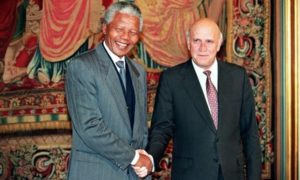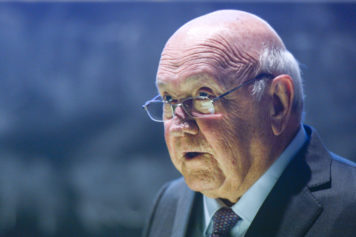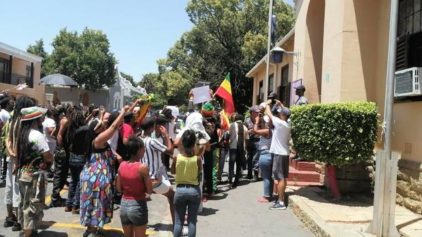A Cape Town highway was renamed after the last president of South Africa’s white-minority apartheid government, FW de Klerk, on Wednesday despite fierce opposition.
The proposal was adopted during a chaotic city council meeting, with councillors from South Africa’s ruling African National Congress – virulently opposed to the motion – locked out of the venue, local media reported.
Cape Town is under the control of the opposition Democratic Alliance (DA).
South Africa’s last white president, De Klerk ruled from 1989 until the country’s first democratic elections in 1994.
He was jointly awarded a Nobel peace prize with Nelson Mandela in 1993 for his part in dismantling apartheid.
The proposal to rename a 5km section of the highway – previously called Table Bay Boulevard – after him was put forward by a group of 27 signatories, including fellow Nobel peace laureate Archbishop Desmond Tutu and DA leader Helen Zille.
But the move has been fiercely opposed by the left, including the ANC, the South African Communist Party (SACP) and the trade-union umbrella body Cosatu.
“This move is an affront to the memory of all those who bravely fought and were brutally murdered, and some even hanged, by the apartheid regime,” said the SACP in a statement earlier this month.
Cosatu called De Klerk “an accident of history” who was “forced to negotiate with the ANC to ensure that the big businesses did not lose what they stole in a bloody civil war.”
On Wednesday, ANC councillors disrupted the first city council meeting of the year until the DA majority chose to change venues, locking the ANC out of the new venue – and out of the voting process.
The Cape Town mayor’s office said the proposal had received “overwhelming support” from the public.
De Klerk’s foundation had previously said he was “honoured and touched” by the proposal.
Source: The Guardian



